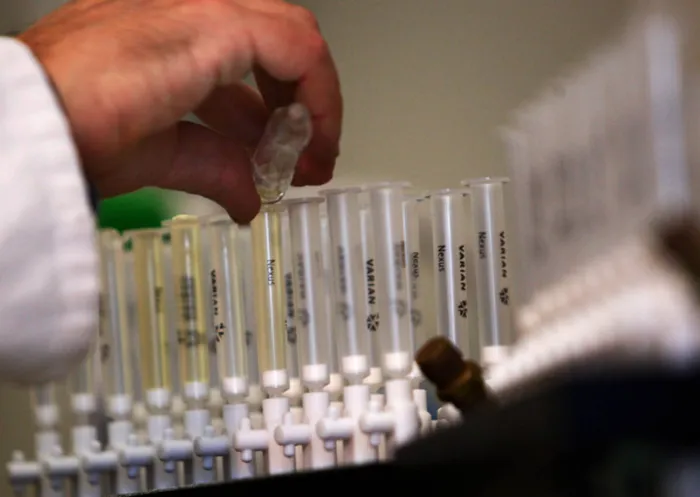Drug lab suspension a financial blow for SA

With Africa’s only World Anti-Doping Agency (WADA)-accredited laboratory suspended, the Bloemfontein-based SA Doping Control Laboratory, countries now have to send samples for analysis beyond the borders of the continent, bearing extra financial costs and burdens. File Photo: Sang Tan
Cape Town - With Africa’s only World Anti-Doping Agency (WADA)-accredited laboratory suspended, the Bloemfontein-based SA Doping Control Laboratory, countries now have to send samples for analysis beyond the borders of the continent, bearing extra financial costs and burdens.
The portfolio committee on sports, arts, and culture was briefed by the SA Institute for Drug Free Sport (SAIDS) and the SA Doping Control Laboratory (SADoCoL), at the National Assembly on Friday.
WADA suspended the accreditation of SADoCoL for a period of up to six months as at March 1.
This suspension is still in place. SADoCoL director, Hanno du Preez, said the laboratory has been in existence since 1983, and is one of 30 WADA-accredited laboratories in the world and the only one accredited on the African continent.
“As an income-generating entity, the laboratory’s financial stability has been severely impacted by the suspension currently with the UFS (University of the Free State) actually shouldering the financial burden on behalf of the laboratory.
“Without the ongoing support of the university, SADoCoL will not be able to weather this difficult period.”
The laboratory does not receive any government funding.
“Currently the laboratory is suspended by the world anti-doping agency due to a number of issues raised during the site visit of October 2022 and one of the major findings was the lack of a second certifying scientist in the laboratory to conduct the specified isotope ratio mass spectrometry analysis.
“This is a very critical confirmatory analysis needed to prove the origin of certain steroids either to be exogenous or endogenous of nature and together with this and the other analytical protocols are being addressed to enhance output and the performance of SADoCoL.”
Du Preez said South Africa and other African countries have to send all urine samples for analysis to other WADA-accredited laboratories such as in Qatar, Madrid, Belgium and Germany, at extremely high cost.
He said SADoCoL was expecting the WADA assessment team for re-accreditation in the week of January 15-17, during which an assessment audit will be conducted on the laboratory’s processes to ensure compliance with the requirements of international standards for laboratories.
SAIDS CEO, Khalid Galant, said the majority of doping positives were in the sporting codes of athletics and bodybuilding.
“There appears to be real issues in athletics, in long distance running with cheating and doping and it is something that we are looking furthermore and we have two active investigations into that.”
Previously, the highest number of test positives were in rugby, particularly youth-level.
In terms of bodybuilding, Galant said: “They tend to have almost like a 80% positive rate of the tests that we do. This is an issue that we’ve raised repeatedly with the federation and with Sascoc.”
Galant said the issue of SAIDS non-compliance has been resolved through legislative changes.
He said they were aware of the issue of steroids being sold at schools and they do investigate such instances in an attempt to “disrupt” this.
shakirah.thebus@inl.co.za
Cape Argus
Related Topics: